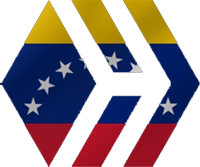The Silverbloggers Chronicles #18. History

Around 1992, a professor and fellow university student told me an incredible and fascinating story. Until then, I knew nothing about the world of computers, much less that there was already a way for them to communicate with each other.
This friend, during our class breaks, always found time to tell us about the lively conversations he had, thanks to his fluency in English, with a professor at an American university. Every afternoon, he would give us details about the revolution taking place in the field of communications, a revolution that was beginning to change the world we knew.
As I listened, my curiosity only grew. So one day, I asked him to take me to his house to see how it all worked. Being there felt like witnessing a magic show.
He turned on his small computer, with a monitor that was at most twelve or thirteen inches, and immediately white letters began to appear on a blue screen. He explained that sometimes the connection didn't work; it all depended on the capacity of our local phone line. At that moment, he didn't explain anything about a modem or the hidden mechanism that allowed the two computers to connect wirelessly.
But the miracle happened before my eyes. At a certain point, he told me that his friend was already connected somewhere in the USA. He typed some text that appeared on the screen, and then, after a pause, without him doing anything, some text began to appear—it was the reply from that other professor who had just sent his message.

The truth is, watching all that, I felt like I was in some science fiction series, where they had already anticipated that kind of communication. That afternoon, at my friend's house, was my first contact with the internet that, in just a few years, would radically change the way we communicate.
As a result of that experience, I began to take an interest in learning more about computers. At that time, PC operator courses were starting to appear. I enrolled in one offered by the University of Carabobo, Maracay campus. There, I was lucky enough to meet a former high school student who knew much more than I did. Every night, after classes, we would go and study for a while, but only theoretically, because neither of us had a computer.
The following week, I bought my first computer, a generic one that, in the language of the time, was called a clone. These were computers that didn't have a well-known brand like Dell, HP, or Apple. They were assembled in stores with different components from the companies that manufactured them; the motherboards were from one brand, the memory from another, as were the processor, hard drives, and other components. These clones were much cheaper than brand-name computers, but they were also very efficient.
I remember that at that time the Windows operating system was still far from being invented; instead, I think we used what we called MS2, a distant predecessor.
That operating system was very basic; you had to learn many commands to communicate with the machine and to run programs like word processors. I also remember that both the programs and the operating system came on floppy disks, which were numbered and had to be stored very carefully because they were quite fragile. Back then, nothing like a USB drive or an SSD was even a dream.

Years later, around 2006, when I retired, my wife and I opened an internet café in an annex of our house. With the café, we immersed ourselves in the world of the internet, learning enough to teach others.
In our area, it was the only internet café for a long time. Hundreds of people had their first experience with computers there and were introduced to the world of the internet. At that time, the big novelty was email and Facebook, which was beginning to take over as the king of social networks. I still run into people on the street who tell me they still use the email accounts we set up for them back in the internet café days.
Throughout my seventy-one years, I have witnessed the creation of great achievements in the field of science and technology, but I believe that the internet is undoubtedly the most important, the one that has most influenced and continues to influence the future of humanity.
I am making this post at the invitation of my friends in the @silver-bloggers community. To join, click on the following link.
Thank you for your time.
Google translation.





Logo creado por @themanualbot


Mis primeros pasos con el internet fue a principios del 2000 cuando estaba en la universidad, recuerdo que habían muchos cyber café. Ahora todos tenemos uno en la mano, quien lo iba a pensar.
My first steps with the internet were in the early 2000s when I was at university. I remember there were many cyber cafes. Now we all have one at our fingertips; who would have thought?
Yes, it's impressive how much progress has been made in this field. We are privileged to have lived through this moment in human history. Thank you for stopping by and commenting, my dear @beysyd . Warmest regards from Maracay.
Back in the day, computers were really really expensive. I remember I bought one and my mother nearly had a heart attack when I said it was a few thousand dollars!
Here those clones were cheap, very affordable for most people.